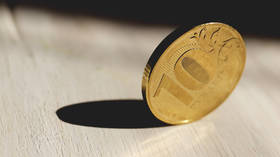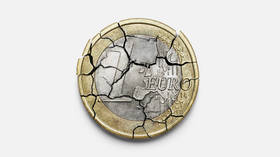Ruble rally continues to defy sanctions

The Russian ruble continued to strengthen on Tuesday, gaining over 1% against both the US dollar and the euro, according to trading data from the Moscow Exchange.
At the opening of the session, the dollar rate fell below 55 rubles for the first time since June 30, 2015. The euro was also trading at a seven-year low against the Russian currency, below 58 rubles per euro.
The ruble is gaining strength against both of the globe’s top reserve currencies ahead of large tax payments, allied to high prices on commodity markets. Russian exporters sell foreign currency to pay taxes in rubles at the end of June. The peak is expected on June 27-28, and analysts predict the ruble will rally further in the coming week, strengthening to 50 rubles against the dollar and 55-56 against the euro.
However, other experts suggest that in the longer term the ruble may decline. It will depend on the state of the Russian economy and, most notably, on the activation of imports – once they start rising, demand for foreign currency will surge, weakening the ruble from current levels.
The ruble dropped to record lows in March due to the pressure of Western sanctions, but has since more than doubled in value due to strict capital controls by the Central Bank, rising global energy prices and Moscow’s gas payment demand, requiring ‘unfriendly’ countries to pay for natural gas supplies in rubles.
Last week, however, the head of Russia’s Central Bank called to lift most capital controls in an effort to weaken the national currency, as the government believes that the ruble is too strong at the moment. A strong ruble could be bad for Russia’s budget, which gets substantial revenues from energy taxes denominated in foreign currencies but spends them in rubles.
For more stories on economy & finance visit RT's business section













